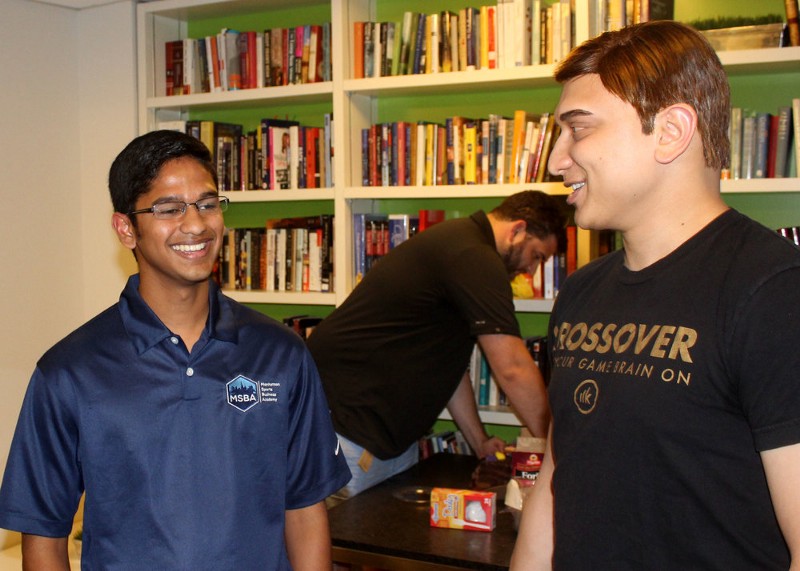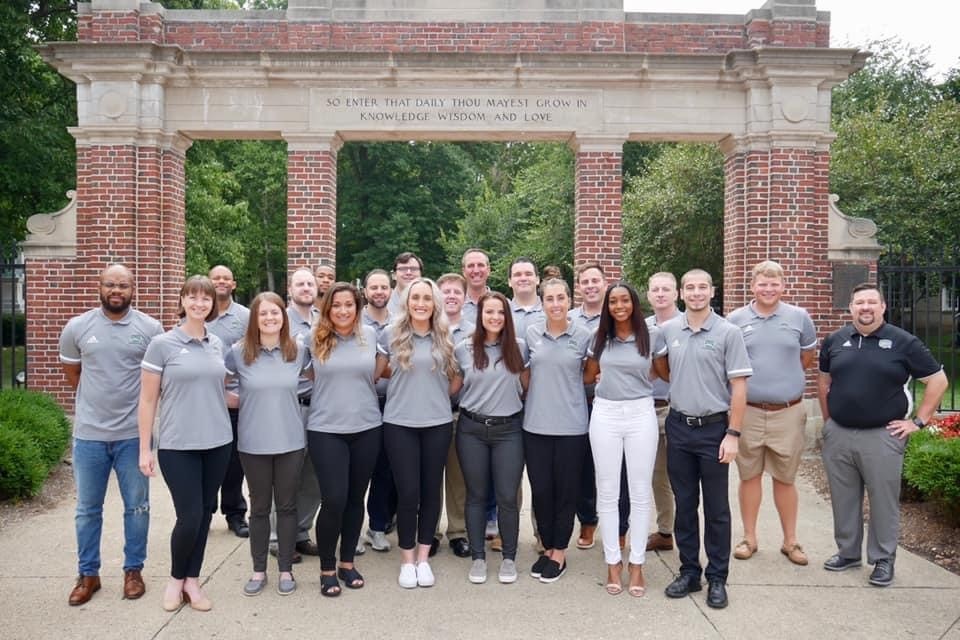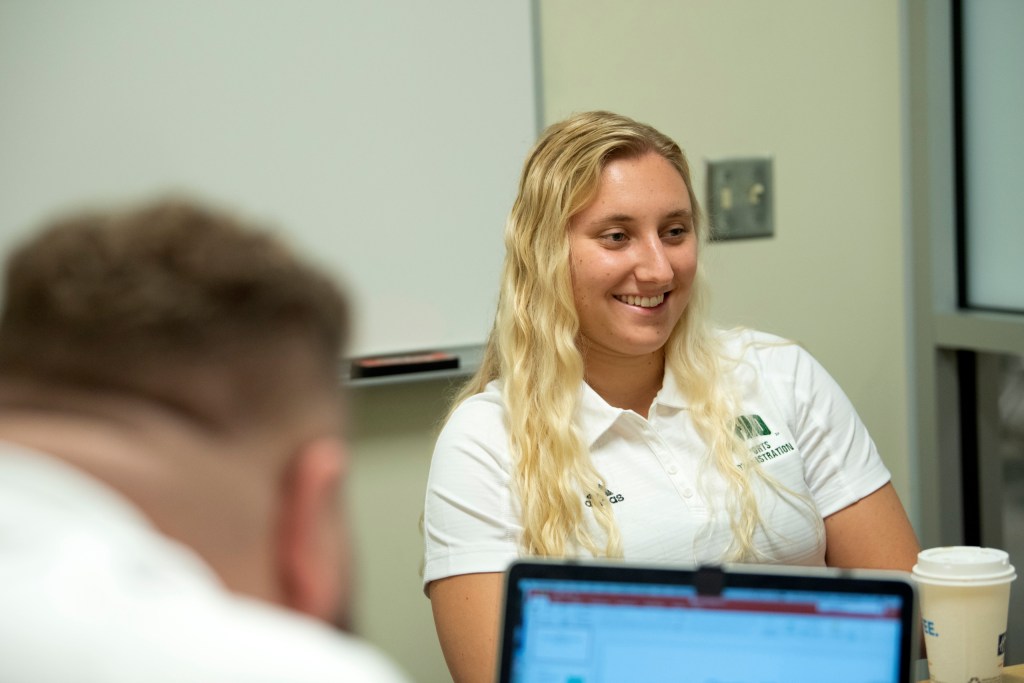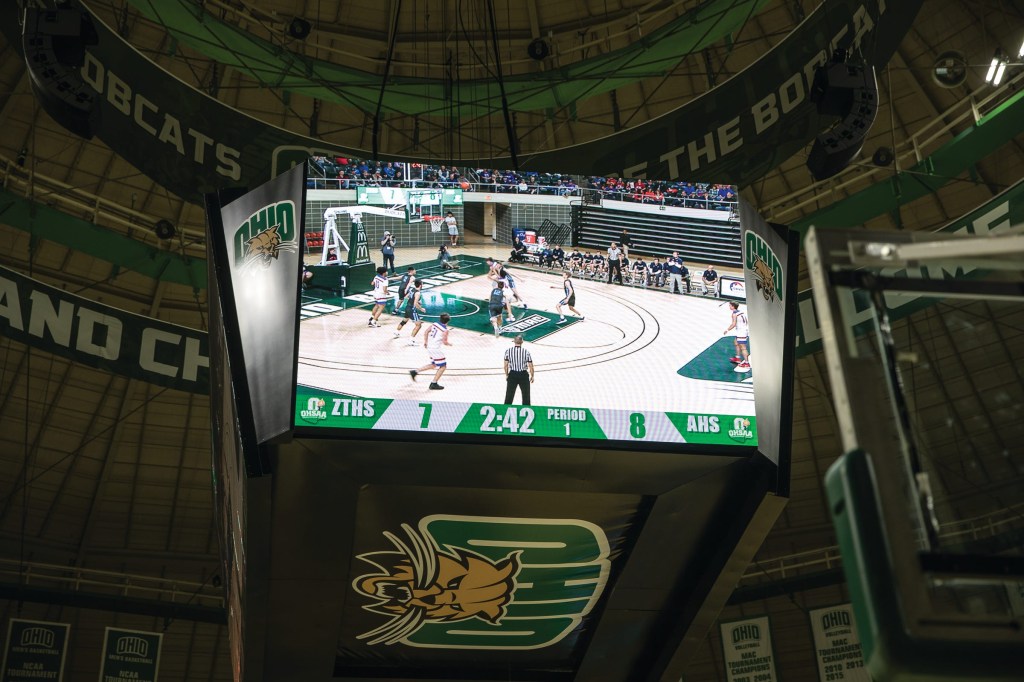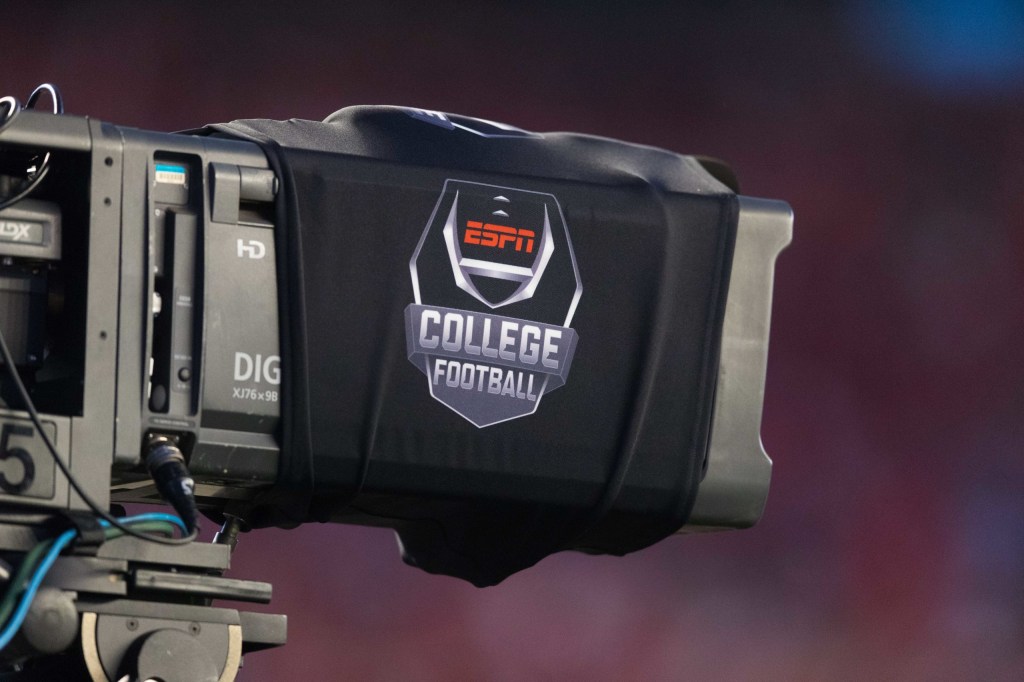By Sanjit Vallabhaneni, @sanjitv7
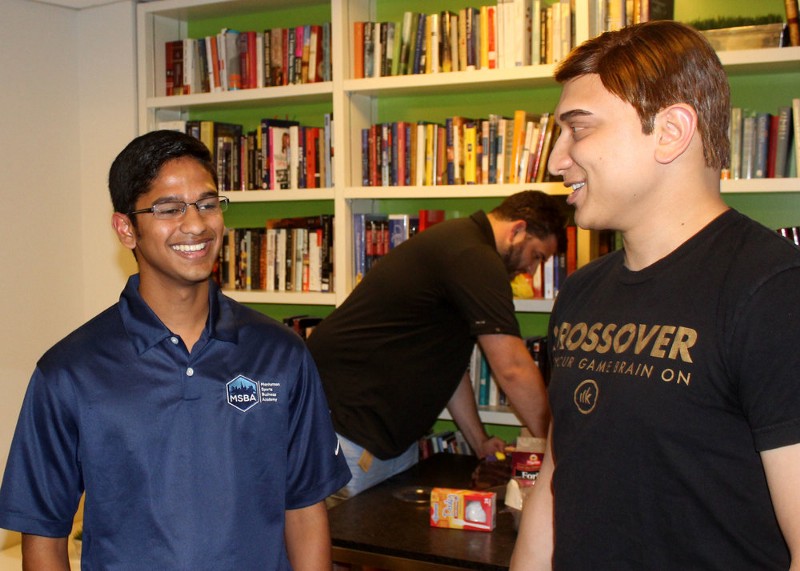
Last summer, I was selected as one of just 25 members to partake in the Manhattan Sports Business Academy. MSBA provides its members with the opportunity to personally connect and network with the industry’s best and brightest through mentorship pairing, a speaker series, office field trips, career workshops and internship placement with leading sports organizations.
Want more great content like this? Be sure to subscribe to our newsletter!
Coming out of my summer with MSBA, I wanted to keep the spirit and memories of the program alive (not just for me, but for my classmates and the entire MSBA Community as well).
Even more importantly, I felt inspired to share the advice imparted to me throughout the summer with the thousands of aspiring sports business professionals who haven’t been fortunate enough to participate in the program.

With these goals in mind, I reached out to a small sample of the hundreds of individuals I had the privilege of interacting with this summer — individuals whose advice resonated with me and had a meaningful impact on my personal and professional growth.
I sent participants a short list of questions and asked them to answer their favorite two. Hopefully with the responses you’ll get a genuine sense of how enlightening my summer with MSBA truly was.
1. If you were in my position right now (an aspiring sports business professional), what steps would you take in order to break into the sports industry?
“People who want to work in sports have to understand that working really, really, really hard is the basis for even being in sports, much less thriving. So if you’re going to flourish you have to go above and beyond everyone else by building your brand and showing people that you bring something else to the table. The sports agency business is the highest echelon of that. As I tell my students, focus on building your brand and differentiating yourself. Focus on not only being the absolute best at whatever it is that you choose to do, but making sure that you’re building relationships with people. The sports business is small, everyone knows everyone, and if you’re going to be successful it’s not just about what you’ve done but it’s more about who you know. You should do everything you can to meet as many people as you can, then figure out how to deliver value to those people so you can strengthen ties.”
– Jason Belzer, President, Game, Inc.
“Pick a lane you want to play and prosper in: Ticket sales, sponsorship sales, digital media, etc. Volunteer/intern to get real experience in that area (you need experience to get experience). If your work doesn’t directly lead to a gig, demonstrate those results with something more attention grabbing than a resume: A portfolio, podcast, infographic, microsite, etc. All throughout: Find a mentor or two who are highly established in your chosen area. Meet with them monthly, if possible, to talk through your experience and progress, and get their feedback. Soak up the wisdom.”
– Peter Robert Casey, Co-Founder & CEO, Sports Passport
“Seek a diverse set of experiences, and not just within just your particular choice of industry. Look for opportunities that are more practical and hands on. They teach you the most. Also, never forget to constantly build your relationships with your peers in the process.”
– Mark French, Founding Partner, Mission Athletecare
“First step to breaking into the sports industry is understanding that it is a very difficult area to break into. Networking is by far the most important skill to possess. Not so much meeting a multitude of people as much as meeting the right people and keeping in touch and following up. You rarely if ever get the perfect job. You need to learn to compromise and take the job you are given to start off with.”
– Mark Waller, Executive Vice President of NFL International, National Football League
2. What qualities do you feel make up an ideal candidate to be hired by your organization?
“Honesty. Integrity in everything you do. Humility. Ability to be a team player. Love what you do. Exude passion for the business, people and yourself. My best piece of advice for next gen business leaders is to bring unique ideas to the table and be able to champion those ideas.”
– Jake Jacobs, Executive Vice President & CEO North America, Foot Locker
“Be unique. Play your strengths. One of the first things I noticed when getting into the sports industry is that the majority of aspiring professionals are coming from the same background and saying the same thing. Never tell employers that you love sports and you always have. We all do. Tell them what you can bring to the table that you know other candidates cannot. Play even the smallest experience as something you can apply to the job at hand. We all have unique little notes on our resume. Amplify them.”
– Leo Parsons, CRM Coordinator, Madison Square Garden
“Thousands of jobs go unfilled because companies can’t find the right talent that fits their business needs. To break into any industry these days, a candidate needs to research the industry and understand what are the future skills and capabilities required. The foundational skills required to be hired by any company are usually good communication skills (ability to tell your story), demonstration of good work ethic, relationship skills (ability to work effectively with others), take initiative, problem solving skills and being smart.”
– Robert Perkins, VP of Talent Management, Foot Locker
3. What is one daily habit you possess that makes your more effective/efficient in your work?
“The first thing I do every day when I get into the office is to take 15–20 minutes to browse the web and see what’s happening in the industry. Having an understanding of what is happening in the marketplace is important for your own understanding, especially when you’re approaching brands with partnership opportunities in mind.”
– Vinnie Butera, Account Executive, Brand Partnerships, Whistle Sports
“Plenty of sleep and taking the time to do something that you enjoy is the most important part of being effective at work. A lot of people think working 18 hours a day and not taking a break is the startup way. While I’ve certainly had to put in my fair share of late nights and weekends, I take my sleep and workouts very seriously. I try as hard as possible to get at least 7–8 hours of sleep a night, and also make sure to carve out time to play basketball at least 4 days a week, without fail. If meetings have to be moved, so be it, but for me, if I don’t have that outlet to clear my mind then I’m going to end up being less effective at work anyways.”
– Vasu Kulkarni, CEO, Krossover
“One of my daily habits is starting every morning off with my to-do list. It’s a simple task that many of us do, but it plays a huge part in our productivity for not just the day, but also the week and our overall performance. Organization is one of the most underrated skills in the workplace. Write everything down you want to accomplish in the day, week, or month. Be organized. Know what you have to accomplish, what you would like to accomplish, and go out and tackle each item one-by-one.”
– Leo Parsons, CRM Coordinator, Madison Square Garden
“Reading in the morning. It wakes up the mind and gives you a sense of accomplishment for beginning the day. Nothing like learning in the morning to start your motor.”
– Adam Vogel, Director of Inside Sales, New York Mets
4. What trait/quality made you stand out from the competition when you initially broke into the sports industry?
“I was aggressive, but also extremely professional. I made my own business cards so I could network whenever I was covering a college football game for my student newspaper. I kept in touch with writers at national outlets when I was an intern, but was never pushy about whether or not jobs were becoming available. I checked in every couple of months, remembered key details about family or friends outside of the profession and built genuine connections while I interned and job searched. I never turned down an opportunity for a byline or to cover an event, which allowed me to prove that I could handle as much as newspaper editors could throw at me. My stories stuck out, and my relationships kept my name fresh in editors’ minds. So when the time came for USA TODAY to hire an entry-level college basketball digital editor, the top editors thought of me — so I could get in the door.”
– Nicole Auerbach, College Sports Reporter, USA Today Sports
“Definitely persistency. Out of college I worked at a large financial institution, MBNA, which issued credit cards. It was acquired by Bank of America. Custom credit cards for professional sports teams and leagues were one of our offerings — for example, New York Yankees Visa, NHL MasterCard, NASCAR MasterCard, New England Patriots Visa, etc. I was working in a different area of the company but knew I wanted to be in the Sports group. Over the course of one year, I met with and got to know the key leaders in the Sports group. I stayed in touch with each. When a position opened up, I landed it as a result of the groundwork I laid over the past year plus a recommendation to the hiring manager from my boss.”
– Jim Donofrio, Vice President of Strategic Partnerships, NBC Sports & NBC News
“Attention to detail. I focused intensely on being more thorough and thoughtful than everyone around me. This quickly led to more trust, respect and responsibility ultimately providing opportunities for me to operate at a level where my results did the talking.”
– David Oestreicher, Co-Founder & President, Rec*IT/Co-Founder, Manhattan Sports Business Academy
“Proven success. Whether in college, where I was able to demonstrate excelling academically, or as a leader in numerous student organizations, or the relevant and applicable internship experience I acquired, my resume showing proven success in each area got me on the radar screen of future employers. Proven success will always get you invited to interview.”
– Robert Perkins, Vice President of Talent Management, Foot Locker
“Exuding confidence — as a person and a professional. I attribute that confidence to getting engaged in student life and extracurriculars during my undergrad. My accomplishments in those extracurriculars allowed me to showcase to employers that I was taking my time and career very seriously while my other peers were playing around. Involvement in the sports business club on my campus directly led to my first internship, which led me to my second, and so on. If it weren’t for getting involved outside of class, I’d probably still be stuck on campus playing solitaire on my laptop.”
– Lorne Segall, Program Director, Manhattan Sports Business Academy
5. What is your single best piece of advice for the next generation of sports business leaders?
“Become the best at a niche area of the sports industry. Young people in the industry who follow this advice will find bigger and quicker success than anyone else because their abilities in that area of need outweigh their overall inexperience. Generalists face far more competition to climb the ladder.”
– Jay Bavishi, Marketing Manager, Twitter
“My advice to aspiring sports business pros is to leverage the expertise you have built over a lifetime of limitless connectivity to your advantage in order to A) help existing businesses thrive and evolve with the changing world around them or B) identify existing gaps in the marketplace and have the confidence to go out and create the solution yourself. There is never a better time to take a risk and bet big on yourself than in your 20’s. You possess more potential than you even realize when passion is put into persistent practice. Don’t be afraid to go out there and make it happen!”
– Marcus Fuller, Analyst, Futures Sport + Entertainment
“Think steps ahead and be as agile as possible. The sports landscape is going through some big changes from youth all the way to the professional leagues. It is critical to keep an open mind about the future of sports and where you can have an impact. I think one of the trends great leaders will pay attention to is how you can use technology to enhance the sports experience. This goes for the athletes, families, fans, executives, trainers, and coaches. Using technology to make informed decisions based on data will be a winning edge.”
– Cameron Goldberg, Vice President of Sales, LeagueApps
“Be a fan of the industry as much as you’re a fan of the sports you enjoy. People get into sports business because they’re fans, but people continue and succeed in sports because they love what they do behind-the-scenes, away from the field of play. So get knowledgeable and develop that passion for the side of sports you don’t always see on TV. I’m a sports business news junkie. I try to read everything about sports off the field, from SportsBusiness Journal to the Wall Street Journal, Forbes, ESPN and anywhere else I can read about our industry, I do. Just being aware and up-to-date on issues, trends, deals and events is very beneficial.”
– David Hochman, Business Communications Specialist, Major League Baseball
“Young people are generally too loose with everything from communication to work product. Control what you can control. and be certain the way you carry and present yourself represents your best self. This is the biggest opportunity for newbies to differentiate and build a strong reputation early on.”
– David Oestreicher, Co-founder & President, Rec*IT/Co-founder, MSBA
Sanjit’s internship placement during MSBA was with the Allocations department at Foot Locker’s NYC headquarters. He is currently a senior at Emory University and can be reached at sanjitv7@gmail.com. For more information on MSBA, visit goMSBA.com.
